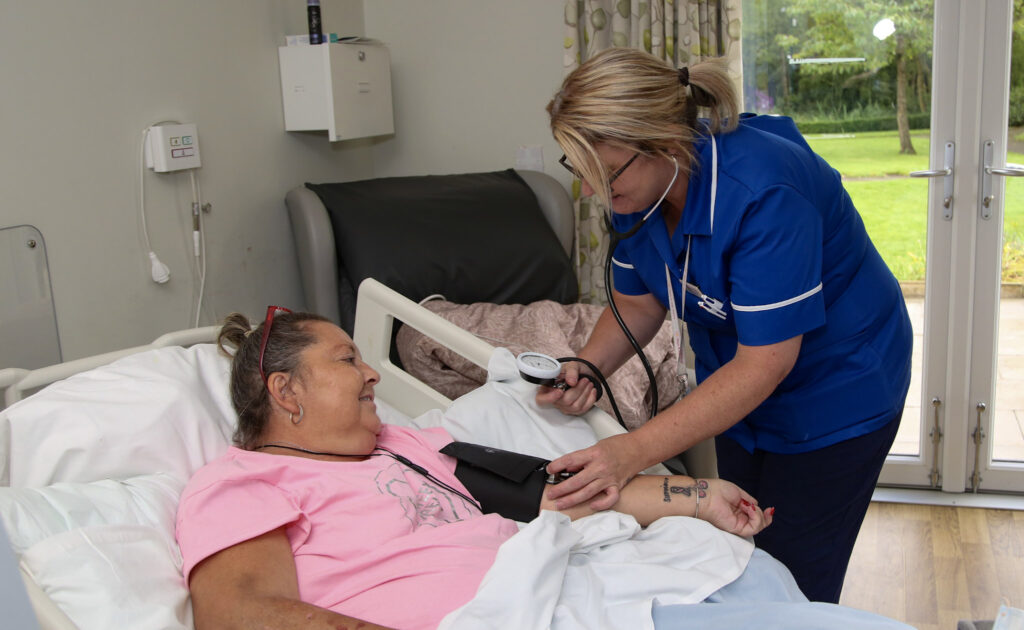Concerns over palliative care funding in Greater Manchester town
- Wigan and Leigh Hospice currently needs to raise £12,000 per day to operate
- Based on current projections £1m will be taken from the hospice reserves to continue the palliative care service
- Councillor Keith Cunliffe has put forward a proposal to the government to provide more funding for end of life care
A Greater Manchester hospice needs to raise £12,000 a day in donations to continue providing palliative care.
Wigan and Leigh Hospice provides end of life care within the borough, relying on charity donations to stay open.
The figures for the hospice show a projected deficit of £1m to be funded from their reserves, caused by a range of factors such as the cost of living increase and the Covid-19 pandemic.

Fundraising and lottery manager for the hospice, Lindsey Butler, said: “We collectively have to raise £12k a day, including money made in our retail shops, so that the hospice can provide care. We’ve raised more money than in previous years and everybody in the team is getting involved as we’re aware of the deficit.
“But even though we’ve made so much more money, the cost of living’s gone up, electric’s gone up and medications gone up. So we can see the impact we’re making but we still need more funding.”
The current expected cost of running the hospice through 2023/24 is expected to be over £6m with £2m coming from NHS Greater Manchester and £108,000 from Wigan, Wrightington and Leigh. With estimated charitable donations of just over £3m this leaves the deficit at £1m.
Charitable donations traditionally have been able to cover two-thirds of the hospice’s costs. However, this expected to be at 48% in 2023/24 leaving an in-year cost pressure.
What care does Wigan and Leigh Hospice provide?
Wigan and Leigh Hospice provides palliative care for those approaching end of life through their 14 inpatient beds but also provides care to people within the Wigan borough through their hospice in your home service.

Left to right: Jasmine (Fundraising), Heather (Senior staff nurse), Karen (Health care assistant)
Image: Matthew Barber
Lindsey said: “Many people assume we’re just in Hindley but the majority of our work is done through the community such as hospice in your home.
“When people are referred to us through the hospital, our community nurses go to their homes as many patients choose to be at home when they’re going to pass or they can’t get a bed so hundreds of our patients are seen outside the hospice as well.”
The team also provide counselling for those going through bereavement for family members who pass, and have a free will service in place for those who don’t have one in place. The teams on the ward have also planned weddings and birthday parties for patients to fulfil their wishes as they receive end of life care.
What is the solution?
Councillor Keith Cunliffe has put forward a motion to gain more funding for Wigan and Leigh Hospice with a request of an additional £750k of funding. This would mean that of the 14 beds currently at Wigan and Leigh Hospice, only £2m in charitable donations would be required to fund inpatient beds.
Lindsey said: “We need to raise more awareness, as people think we’ll always be here just like the hospital. We definitely need more funding from somewhere and we’re lucky the people of Wigan and Leigh give so much to us, but we can’t keep asking for more.”
‘We’re lucky the people of Wigan and Leigh give so much to us, but we can’t keep asking for more’
Lindsey Butler, Fundraising and lottery manager of Wigan and Leigh Hospice
Councillor Cunliffe said: “At the moment we’re in a situation where there finances required can be propped up by reserves. The issue is you can only use those reserves once.
“We should have 31 inpatient beds for a borough of our size, we have 14 and if things don’t change in 12 months time we could be down to 12 beds. The complete nightmare scenario is that the hospice becomes financially unviable and closes.
“I think the answer is national funding, so nationally they need to look at investing into the hospice services. With a gradual move at least 50% of the hospice being funded by the NHS, as if the hospice were to go out of business it would cost the NHS more than what we’re asking for.”


